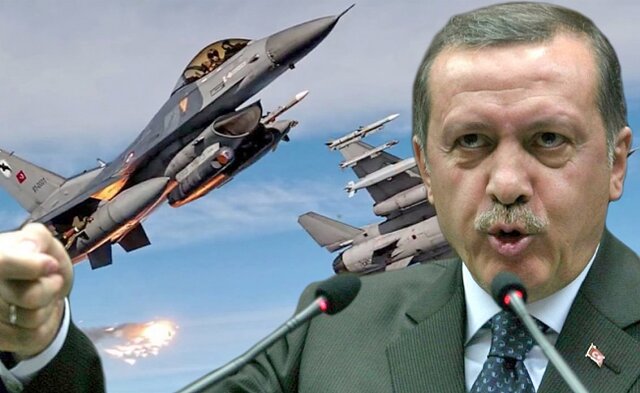Turkish President Recep Tayyip Erdogan’s threat to attack Greece, including with ballistic missiles against Athens, if the militarization of the Aegean islands continues, is one of the most significant recent developments in world politics. Just like the recent escalation on the Kosovo-Serbian border, which this time ended without any consequences.
We have already written that the policy of the current Greek government, which includes the accelerated militarization of the country, including in the disputed areas of the Aegean shelf, potentially puts it at risk of Turkish strikes, as Turkey understands that Greece is preparing for war with it. This idea remains relevant: the actions of the Greek government are indeed provoking a new war. However, two important circumstances have changed since then.
First, there are the external political circumstances. The Kremlin dictator started his war against Ukraine under the pretext of a preventive strike and demilitarization operation. After that, any repetition of such actions will inevitably be associated with him and will put the country that takes such steps in the same line as Putin’s Russia, with all the consequences that entails. Moreover, there is a risk of repeating Putin’s example not only at the beginning of the war and in response to sanctions, but also in terms of losing the war. This seems to be what is keeping China from taking similar action against Taiwan.
Second, there are internal political and economic circumstances. And regardless of what anyone may say, these circumstances have also worsened for the Turkish government, as evidenced by the continuing inflation and the resulting impoverishment of the Turkish people, as well as the continuing decline in support for the Turkish government.
There is a high risk that the current Turkish government will go to war in a desperate attempt to reverse this trend and rally the people around it. However, there is a high probability that both possible difficulties on the front and further possible sanctions will have disastrous consequences for Turkey in such a “special military operation”. Despite all the problems that every country has as long as it remains a sufficiently stable state, let’s not forget that it was Putin’s Russia that was behind the adventures in Crimea and especially in February last year. However, a miscalculation in this matter could put Turkey in a situation not even comparable to Russia, where the problem of political opposition was solved before the outbreak of the war, but to today’s Iran, which has been roiled by mass protests.
After all, unlike Russia with its spineless aging population, Turkey’s population is young enough, and for a significant part of it, democracy and civil rights are not empty words, but something they are willing to fight for. Yes, it’s possible that the religious supporters of the existing government will oppose them, although their numbers have also dwindled in recent years. But such a scenario is called “civil war,” and there is nothing good about it.
On the other hand, it is clear that the Turkish leadership cannot ignore the actions of the Greek authorities and the strategic threat they pose. Therefore, the best solution in such a situation would be a loud and determined call for a peaceful solution of this problem, for example in the format of an international conference with the participation of countries that are not interested in a new war in Southern Europe – Turkey and Greece’s allies in NATO.
Not to lose the war, not only militarily but in a comprehensive sense, and instead to win the peace could be the optimal solution for a government guided by national interests rather than the desire to hold on to power at all costs.

